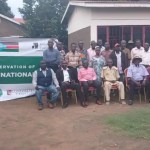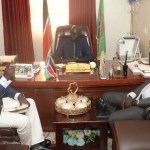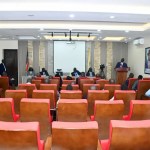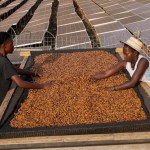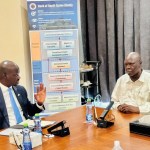(JUBA) – As South Sudan prepares to mark its 14th Independence Day on 9 July 2025, the country’s Transitional National Legislative Assembly (TNLA) remains closed, with no official date announced for its reopening.
Lawmakers have been on recess since December 2024, raising serious concerns about the delay in discussing and approving the 2025–2026 national budget.
Unlike its East African Community (EAC) counterparts in Kenya, Uganda, Tanzania, Burundi and Rwanda, South Sudan has yet to present a new financial plan. It remains the only country in the region still operating under the 2024 budget, even as the new fiscal year advances.
When asked about the prolonged recess, TNLA spokesperson Oliver Mori Benjamin pointed to ongoing preparations for Independence Day celebrations.
“Not yet. Now people are busy with preparations for Independence Day on the 9th. So, people are occupied with that,” Mori told Radio Tamazuj.
However, some lawmakers believe the explanation is insufficient. Bol Joseph Agau, chairperson of the Constituency Development Fund and a member of the TNLA’s economic committee, said he was frustrated by the delay but acknowledged that reopening parliament required collaboration across branches of government.
“As an MP, I wanted the session to resume immediately, but there’s little we can do alone. Reopening requires collective action. It is not something one branch can force,” Agau said.
He stressed that passing the national budget must be parliament’s top priority once it reconvenes.
“The budget is critical. If parliament opens, discussions should begin immediately to ensure the 45 day budget process is completed by July or August. Other legislative matters can follow.”
The budget delay is a legislative concern and also a symptom of deeper financial challenges. In June, Mori, who also chairs the Parliamentary Committee for Information and Communication, stated that the assembly’s inactivity was due to “circumstances beyond our control.”
Agau added that although the government has been encouraging digital transactions, there is still a shortage of physical cash in circulation.
“The issue isn’t that there’s no money. It’s that cash is being hoarded. People are storing money at home, disrupting the flow in markets, customs, and government operations,” he said.
Daniel Juol Nhomngek, a national lawmaker, challenged the official explanation that Independence Day preparations were to blame. He argued the core issue is a lack of funds to support the parliament’s reopening.
“Parliament was supposed to reopen on April 1, but they cited logistical problems,” he said. “This has nothing to do with Independence Day preparations. You can prepare while parliament is sitting. Sessions can resume even as other activities continue.”
He further revealed that lawmakers were informed that parliamentary administrators were in discussions with the Ministry of Finance and Planning to secure operational funds before calling the assembly back to session.
Civil society activist Ter Manyang, who advocates for transparency and good governance, voiced this concern. He claimed the real reason for the continued closure was financial, specifically, unpaid salaries and allowances.
“The country is in total confusion. Even officials don’t know what’s happening. The Speaker told me parliament hasn’t reopened because of a lack of resources. MPs are waiting for their allowances,” Manyang said.
According to Manyang, TNLA administrators submitted a budget request to the Ministry of Finance, but the funds had not yet been released. Officials from the Finance Ministry have not responded to requests for comment.
Regional Budget Status (as of July 2025)
| Country | 2025–2026 Budget Passed? | Parliament Active? | Fiscal Year Started? |
|---|---|---|---|
| Kenya | ✅ Yes | ✅ Yes | ✅ Yes |
| Uganda | ✅ Yes | ✅ Yes | ✅ Yes |
| Rwanda | ✅ Yes | ✅ Yes | ✅ Yes |
| Tanzania | ✅ Yes | ✅ Yes | ✅ Yes |
| Burundi | ✅ Yes | ✅ Yes | ✅ Yes |
| South Sudan | ❌ No | ❌ No | ✅ Yes (Old Budget) |










